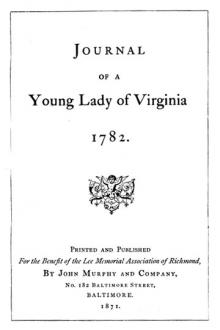The Sketch-Book of Geoffrey Crayon, Gent., Washington Irving [best manga ereader .txt] 📗

- Author: Washington Irving
Book online «The Sketch-Book of Geoffrey Crayon, Gent., Washington Irving [best manga ereader .txt] 📗». Author Washington Irving
Though sometimes pursued and even surrounded by the settlers, yet Philip as often escaped almost miraculously from their toils, and, plunging into the wilderness, would be lost to all search or inquiry until he again emerged at some far distant quarter, laying the country desolate. Among his strongholds were the great swamps or morasses which extend in some parts of New England, composed of loose bogs of deep black mud, perplexed with thickets, brambles, rank weeds, the shattered and mouldering trunks of fallen trees, overshadowed by lugubrious hemlocks. The uncertain footing and the tangled mazes of these shaggy wilds rendered them almost impracticable to the white man, though the Indian could thread their labyrinths with the agility of a deer. Into one of these, the great swamp of Pocasset Neck, was Philip once driven with a band of his followers. The English did not dare to pursue him, fearing to venture into these dark and frightful recesses, where they might perish in fens and miry pits or be shot down by lurking foes. They therefore invested the entrance to the Neck, and began to build a fort with the thought of starving out the foe; but Philip and his warriors wafted themselves on a raft over an arm of the sea in the dead of night, leaving the women and children behind, and escaped away to the westward, kindling the flames of war among the tribes of Massachusetts and the Nipmuck country and threatening the colony of Connecticut.
In this way Philip became a theme of universal apprehension. The mystery in which he was enveloped exaggerated his real terrors. He was an evil that walked in darkness, whose coming none could foresee and against which none knew when to be on the alert. The whole country abounded with rumors and alarms. Philip seemed almost possessed of ubiquity, for in whatever part of the widely-extended frontier an irruption from the forest took place, Philip was said to be its leader. Many superstitious notions also were circulated concerning him. He was said to deal in necromancy, and to be attended by an old Indian witch or prophetess, whom he consulted and who assisted him by her charms and incantations. This, indeed, was frequently the case with Indian chiefs, either through their own credulity or to act upon that of their followers; and the influence of the prophet and the dreamer over Indian superstition has been fully evidenced in recent instances of savage warfare.
At the time that Philip effected his escape from Pocasset his fortunes were in a desperate condition. His forces had been thinned by repeated fights and he had lost almost the whole of his resources. In this time of adversity he found a faithful friend in Canonchet, chief Sachem of all the Narragansetts. He was the son and heir of Miantonimo, the great sachem who, as already mentioned, after an honorable acquittal of the charge of conspiracy, had been privately put to death at the perfidious instigations of the settlers. “He was the heir,” says the old chronicler, “of all his father’s pride and insolence, as well as of his malice towards the English;” he certainly was the heir of his insults and injuries and the legitimate avenger of his murder. Though he had forborne to take an active part in this hopeless war, yet he received Philip and his broken forces with open arms and gave them the most generous countenance and support. This at once drew upon him the hostility of the English, and it was determined to strike a signal blow that should involve both the Sachems in one common ruin. A great force was therefore gathered together from Massachusetts, Plymouth, and Connecticut, and was sent into the Narragansett country in the depth of winter, when the swamps, being frozen and leafless, could be traversed with comparative facility and would no longer afford dark and impenetrable fastnesses to the Indians.
Apprehensive of attack, Canonchet had conveyed the greater part of his stores, together with the old, the infirm, the women and children of his tribe, to a strong fortress, where he and Philip had likewise drawn up the flower of their forces. This fortress, deemed by the Indians impregnable, was situated upon a rising mound or kind of island of five or six acres in the midst of a swamp; it was constructed with a degree of judgment and skill vastly superior to what is usually displayed in Indian fortification, and indicative of the martial genius of these two chieftains.
Guided by a renegado Indian, the English penetrated, through December snows, to this stronghold and came upon the garrison by surprise. The fight was fierce and tumultuous. The assailants were repulsed in their first attack, and several of their bravest officers were shot down in the act of storming the fortress, sword in hand. The assault was renewed with greater success. A lodgment was effected. The Indians were driven from one post to another. They disputed their ground inch by inch, fighting with the fury of despair. Most of their veterans were cut to pieces, and after a long and bloody battle, Philip and Canonchet, with a handful of surviving warriors, retreated from the fort and took refuge in the thickets of the





Comments (0)